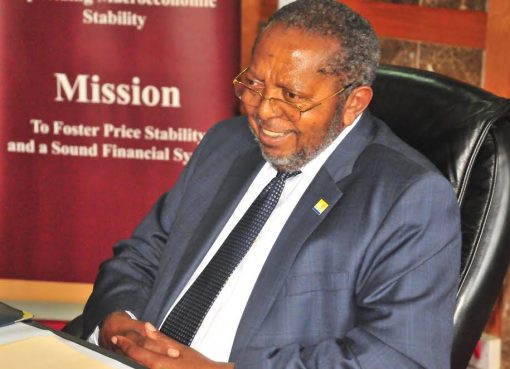Stanbic Bank Uganda Chief Executive, Anne Juuko
Stanbic Uganda Holdings Limited (SUHL) has announced it grew its net profits by 11% in 2021 to earn Ushs.269billion from Ush.242bn in 2020, driven mainly by strong growth in non-interest income earned by mostly Stanbic Bank Uganda Limited, its anchor subsidiary.
Other subsidiaries of SUHL include SBG Securities Uganda Limited, Stanbic Business Incubator, Stanbic Properties Limited, and FlyHub Uganda; however, these are largely new companies still in their formative stages to support the bank serve its customers beyond offering traditional financial services.
According to the financial results released today, Stanbic Bank Uganda net profits in 2021 increased to Ushs275bn from the Ushs.243bn registered the previous year, largely driven by growth in trading income.
Non-interest revenue reported a strong growth of 19.0% seeing earnings of Ushs401billion from UGX 341billion the previous year. Much of the growth in the non-interest revenue was attributed to trading income which increased to Ushs233.7bn from Ushs177.3bn the previous year.
Net interest income for the year grew marginally by 1.5% to Ushs498bn from UGX490bn the previous year attributed to slow growth in customer loans and lower margins as the country underwent a second lockdown in the middle of 2021.
The low economic activity in the year under review also informed low appetite in credit which saw marginal growth in the loan book to Ushs3.7trillion from Ushs3.6trillion the previous year but maintained a 23.3% market share.
The bank said lending was guided by the need to avail credit to sectors that are critical to driving growth such as trading and manufacturing.
According to statistics released today, the bank lent Ushs290 billion to the trade sector, which is the second highest employer in Uganda, Ushs225 billion to household lending, Ushs223bn to building and construction, Ushs218 billion to manufacturing and Ushs150bn to agriculture–the highest employer in Uganda.
Customer deposits grow
Customer deposits grew by 5% from UGX 5.4 trillion to UGX 5.7 trillion in 2021, attributed to sustained customer brand loyalty and service experience through offering financial solutions that are appropriate for their needs.
Stanbic’s financial positioned remained strong in 2021 with the capital adequacy ratio, which measures the ability of a bank to meet its obligations by comparing its capital to its assets, improving from 18% to 21.9%, a rise of 3.9 percent compared to 2020.
Resilient through the pandemic
“As was the case in the previous year, 2021 was equally challenging especially during the first three quarters when the Covid19 pandemic worsened, forcing the economy into another lengthy lockdown that affected several business activities across the country including our own. Notwithstanding these headwinds, Stanbic managed to post resilient results albeit slower growth in some areas. Our performance remains largely driven by the Bank, but we are confident in the other subsidiaries to registering good return on investment,” said Andrew Mashanda, Chief Executive SUHL.
Anne Juuko, the Stanbic Bank Uganda Chief Executive said the business focused on sustained management of asset quality through proactive engagement of customers, restructuring loan repayments, and waiving or suspending interest repayment on loans by client businesses in sectors such as education that were most hit by the impact of covid-19 pandemic.
As a result of this, non-performing loans dropped to 4.6% from 4.7% (IFRS 9 standards) the previous year and saw the provision for the same, reduce to Ushs70 billion from Ushs92 billion in 2020.
“The economy is now fully open after nearly two years of slow activity due to the pandemic—we are upbeat and ready to support full economic recovery. We shall continue to innovate for the customer and avail digitally disbursed affordable credit through bespoke products for women, youth, farmers and our corporate customers,” said Juuko.
On dividends, SUHL shareholders will have to wait until a change in stance by Bank of Uganda which in April 2020, put in place enhanced guidelines for all Supervised Financial Institutions, in relation to discretionary payments, including dividends, for purposes of capital preservation.
“The proposed dividends for 2020 remain under review by Bank of Uganda, the results of which will inform the 2021 dividend recommendation of the Directors,” Juuko added.





